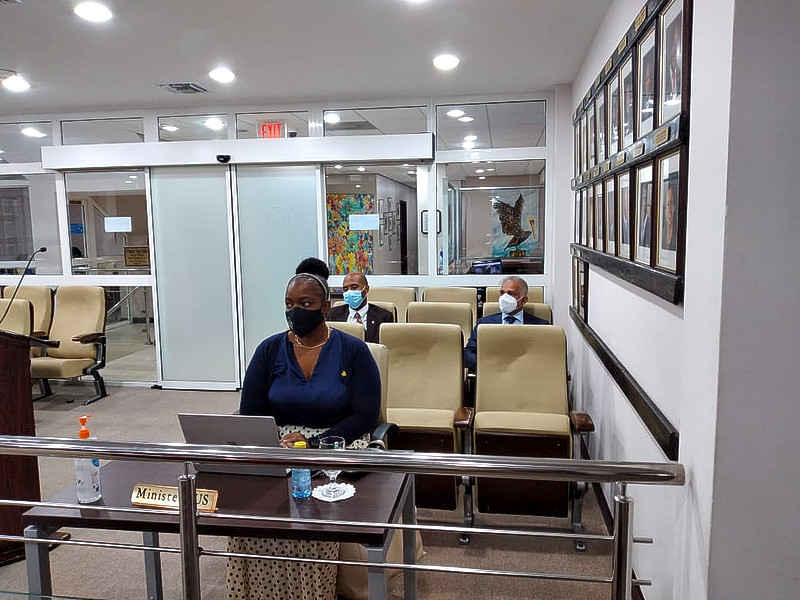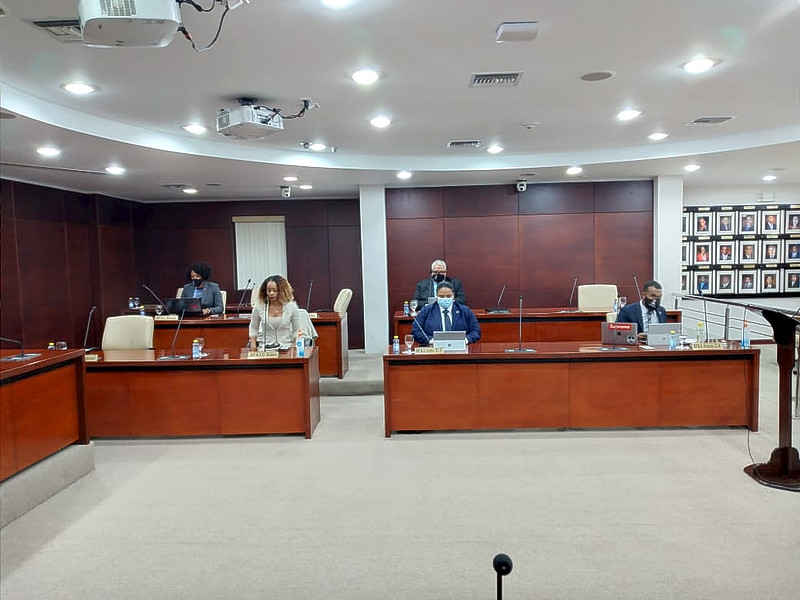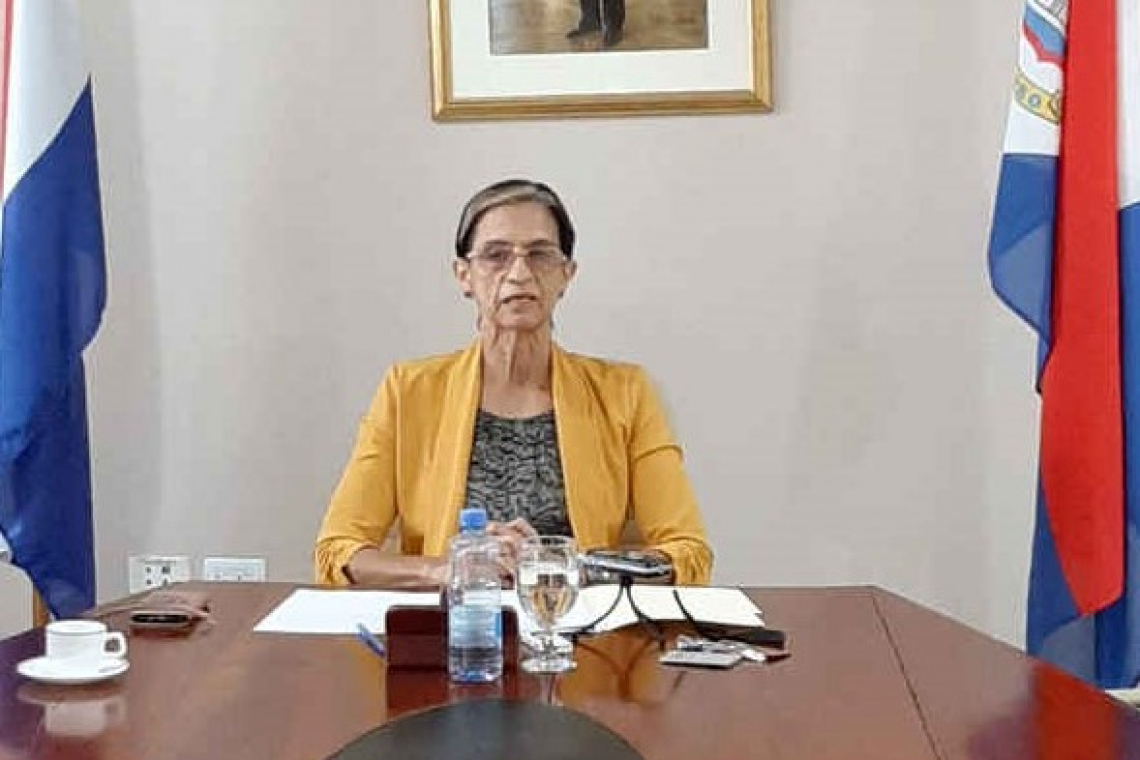UP MP Sarah Wescot-Williams.
PHILIPSBURG--The use of single-use plastics, plastic straws and Styrofoam will be illegal in the country and punishable by a fine of NAf. 1,000 or imprisonment of six months if and when the initiative law passed in Parliament on Tuesday banning these items goes into effect.
The law, an initiative of United Democrats (UD) Member of Parliament (MP) Sarah Wescot-Williams, was passed unanimously in a public session of Parliament. Before it can go into effect, the law has to be ratified by the Council of Ministers and signed by Governor Eugene Holiday.
Justice Minister Anna Richardson, who spoke briefly before the passing of the law, said government has no objections to the proposal as it has been presented with the amendments. She believes also that it can be executed in a manageable manner.
Wescot-Williams said the proposal on this issue, two years in the making, had begun with a ban on the use of single-use plastic bags. During the handling of the proposal, plastic straws were added to the ban and a first amendment came later which added the ban on Styrofoam.
She explained that based on reactions from MPs regarding the low penalties for infractions of the law (currently NAf. 100 or 14 days’ imprisonment), a second amendment was made for the penalties to increase to NAf. 1,000 or six months’ imprisonment.
Wescot-Williams said the purpose and objective of the law is not primarily to seek to collect revenue from the fines and not to pursue imprisonment, but to encourage persons to understand the damage that plastic causes to the environment and persons’ livelihood. Throughout the discussions on this matter, the issue of awareness and education was constantly highlighted.
Alluding to concerns expressed by MPs regarding the placing of the enforcement of the law in the hands of the already understaffed police force, Wescot-Williams said she had held discussions with the legal advisor to the Ministry of Justice and the Acting Secretary-General in mid-October to discuss these concerns. During these talks, it became clear that no change to the draft amendment is necessary to have the law enforced by a party other than the police.
Enforcement authority can be transferred to another party by government and does not need to be legislated.
She explained that the general police ordinance on which the law is based is “a very old law.” Unlike other police ordinances, it does not even contain a paragraph on enforcement specifically. Wescot-Williams has been assured that government and ministries can charge others with the enforcement of the law.
A third amendment, which cancels out the second amendment, was made containing details of the penalties and the technical changes necessary for it to be in compliance with the modern penal code.
The law was first presented in August 2018 as a draft initiative law amending the general police law to ban the use of single-use plastics. It was sent to the Council of Advice in September 2018. In January 2019, the advice from the Council of Advice was received.
Wescot-Williams submitted her reaction to the advice in July 2019. This was accompanied by an amended draft elucidation, which was partly based on the advice received from the Council of Advice. The title of the draft was adjusted to read: Initiative national ordinance amending the general police law in connection with the introduction of the ban on usage of plastic bags and plastic straws.
A meeting of the Central Committee on the draft ended in February 2020. On September 7 of this year Wescot-Williams submitted her reaction to the report of the Central Committee meeting. Two memorandums of modifications were also submitted.
The public meeting handling the draft began on October 9 and was adjourned after concerns expressed by several MPs regarding the placing of the enforcement of the law in the hands of the already understaffed police force, which Wescot-Williams addressed in the continuation of the meeting on Tuesday.
Wescot-Williams has thanked all the persons who were instrumental and involved in the process.
Parliament Chairman Rolando Brison said parliament will notify the government that the draft law has been approved. The governor will send the draft to government for their advice on its ratification. Government will look at the financial issues related to the draft, which will be discussed in a Council of Ministers meeting and, if not approved, Parliament will be notified. If approved, the governor will be notified and the signing will take place for it to go into effect.

Justice Minister Anna Richardson in Parliament.

A scene during the parliament meeting on Tuesday.







